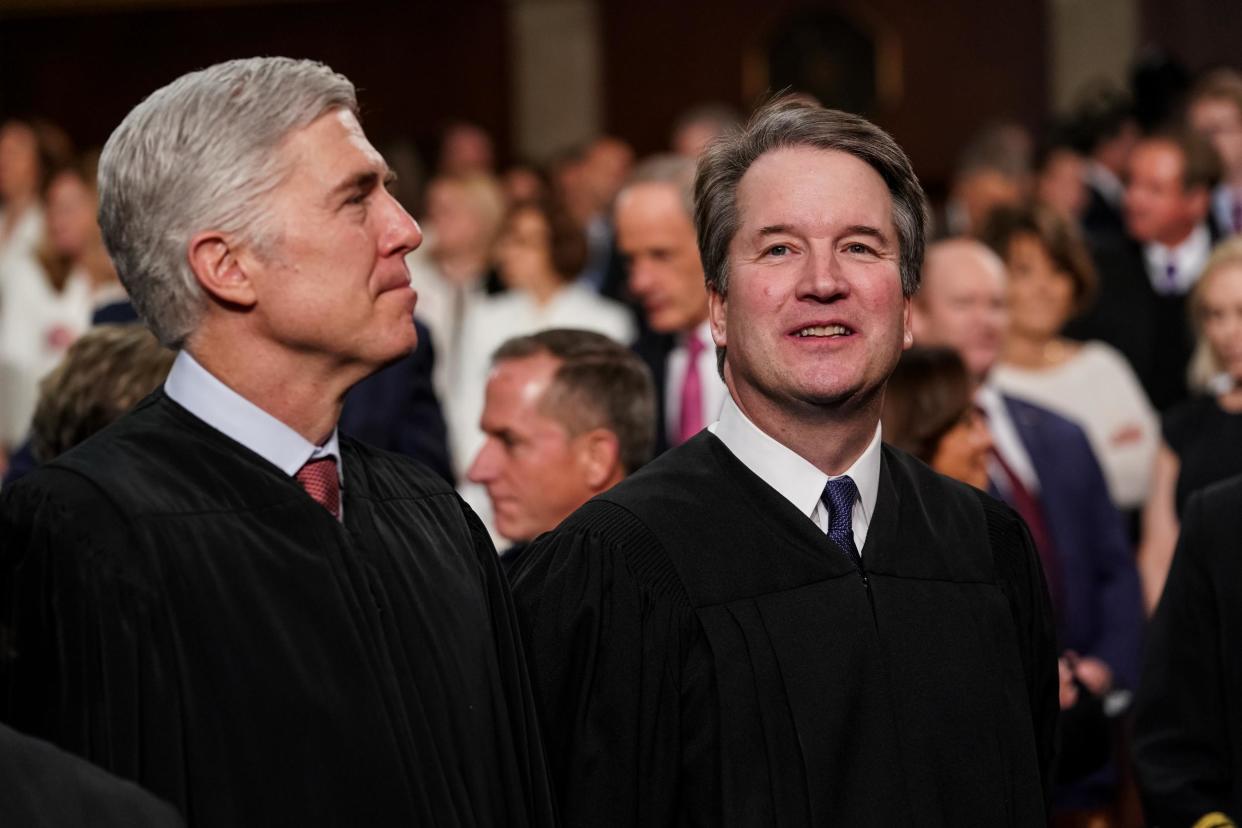Brett Kavanaugh urged Supreme Court colleagues to avoid rulings on abortion and Trump’s tax returns, report says

US Supreme Court Justice Brett Kavanaugh issued memos advising his colleagues to sidestep decisions on major cases, such as those dealing with abortions and subpoenas for Donald Trump‘s tax returns, a new report claims.
Mr Kavanaugh’s suggestions were meant to provide the court a means of ruling on the controversial cases without having to give their own opinions.
The information was first reported by CNN and cites an anonymous source.
Regarding a Louisiana abortion law, Mr Kavanaugh reportedly sent guidance suggesting the justices manoeuvre around issuing any rulings that would result in the closures of abortion clinics in the state.
The law would have forced doctors who perform abortions in Louisiana to get special credentials for performing the medical procedure. The law would have made it more difficult and expensive for doctors to perform abortions in the state, and also would have provided a means for anti-abortion activists to locate and target doctors.
In his memos, Mr Kavanaugh questioned whether the trial judge who originally ruled on the matter had sufficient evidence to argue that the law — if implemented — would force the closure of abortion clinics. By sending the ruling back through the legal system, it effectively blocked the law, though it did not prevent it from being eventually enforced.
Mr Kavanaugh’s suggestion would have allowed the court to stall the implementation of the law without forcing them to issue an opinion on the matter.
In a similar instance, Mr Kavanaugh suggested his colleagues avoid passing judgement on a Democratic subpoena seeking Mr Trump’s tax returns.
The suggestions were allegedly made during conversations and through passed memos, according to CNN’s source.
Mr Kavanaugh, hoping to avoid a public battle between the president and the Supreme Court, suggested the court consider the “political question” doctrine, which argues certain highly partisan issues of a purely political nature as best left to be sorted out by the parties themselves, rather than by the courts.
By adopting that stance, the court could have wriggled free of having to issue a judgement.
Had the plan been adopted, Mr Trump would likely have had to give up his tax documents. The plan was not adopted because the Justices feared that such a ruling would undermine the House of Representatives‘ power to subpoena and consolidate power in the Executive Branch.
Eventually, Mr Kavanaugh dropped the idea and would go on to support Chief Justice John Roberts‘ 7 justice majority ruling that Mr Trump had to turn over the financial records to the House, should the House adequately justify its request.
The Independent has requested comment from Mr Kavanaugh.
Read more
Supreme Court may protect LGBT+ Americans from housing discrimination

